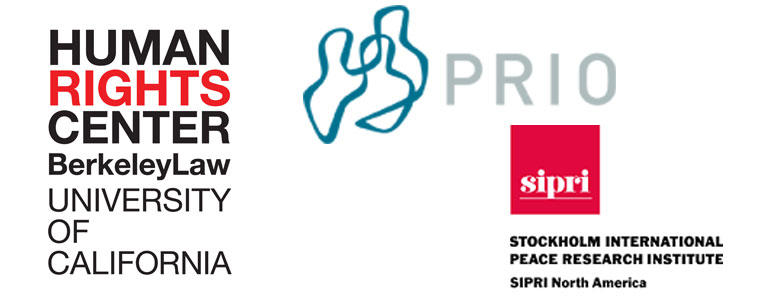The Missing Peace Symposium 2013
Sexual Violence in Conflict and Post-Conflict Settings
Read the event coverageThe United States Institute of Peace (USIP), the Human Rights Center at the University of California, Berkeley, the Peace Research Institute Oslo (PRIO), and Stockholm International Peace Research Institute North America (SIPRI North America) convened a group of expert scholars, policymakers, practitioners, and military and civil society actors to examine the issue of sexual violence in conflict and post-conflict settings, identify gaps in knowledge and reporting and explore how to increase the effectiveness of current responses to such violence.
Through coordination with ARTWORKS Projects and funding by The Compton Foundation, USIP and its partners created a 12-minute video highlighting the main takeaways and key issues covered in the three-day symposium.
Sexual violence in conflict and post-conflict settings is increasingly recognized as a threat to international peace and security. Globally, state and non-state armed actors use sexual violence against women, men, and children to intimidate and terrorize populations, through forced displacement, destroying communities, and silencing of victims. When fighting ends, sexual violence often does not— undermining post-conflict reconstruction efforts and the transition to more stable, secure, and peaceful societies.
Despite the increased international attention to sexual violence as a weapon of war, including the adoption of UN Security Council resolutions, and important rulings in international criminal courts, initiatives to prevent or mitigate these violent acts continue to fall short. Existing international interventions may lack an integrated understanding of the causes for sexual violence and its implications for societies at large.
The United States Institute of Peace (USIP), the Human Rights Center at the University of California, Berkeley, the Peace Research Institute Oslo (PRIO), and the Stockholm International Peace Research Institute North America (SIPRI North America) convened a group of scholars, policymakers, practitioners, and military and civil society actors to examine the issue of sexual violence in conflict and post-conflict settings, identify gaps in knowledge and reporting, and explore how to increase the effectiveness of current responses to such violence.
The goals of the three-day global symposium were to:
- Take stock of current sexual and gender-based violence policies and programming lessons of national governments, civil society organizations, and international organizations;
- Exchange information among researchers, policy makers, and practitioners about the latest research efforts related to causes, scope and patterns of sexual violence;
- Strengthen the community of knowledge and practice beyond disciplinary and state boundaries;
- Identify how to improve research and documentation capacity and new areas for research and policy action.
The explicit aim of the global symposium was to include findings from the latest academic research, as well as insights from practitioners working in conflict and post-conflict situations, including civil society actors, the military, and police. The symposium also launched the Young Scholar network--aimed at supporting PhD candidates and recently minted PhDs in their research and the dissemination of research results to the practitioner and policy communities.
Explore Further
- Download the full Conference Program
- Read Ms. Zainab Hawa Bangura's Keynote Address




